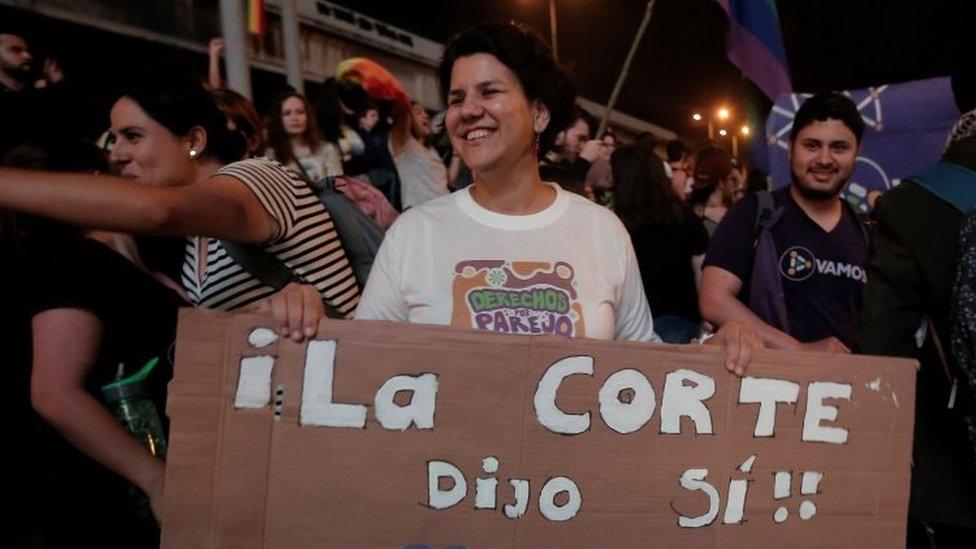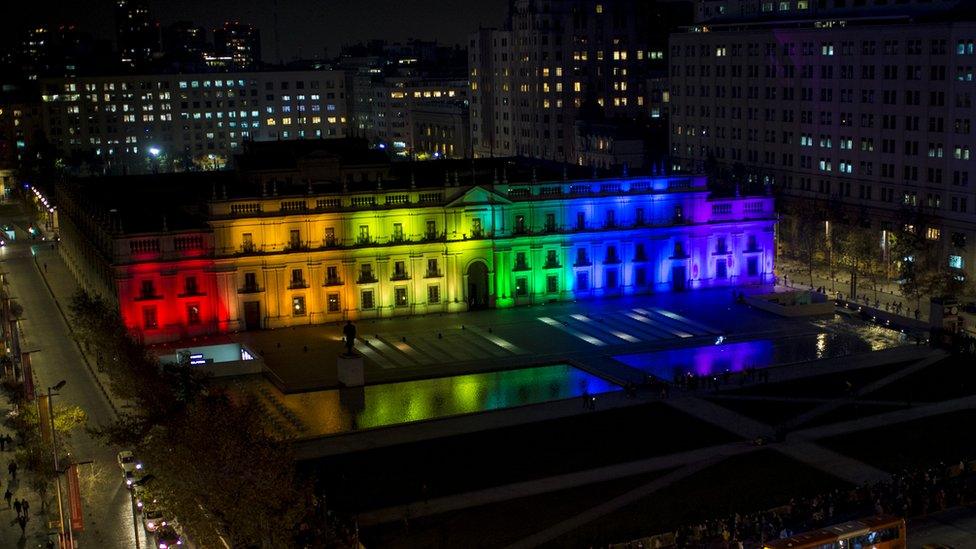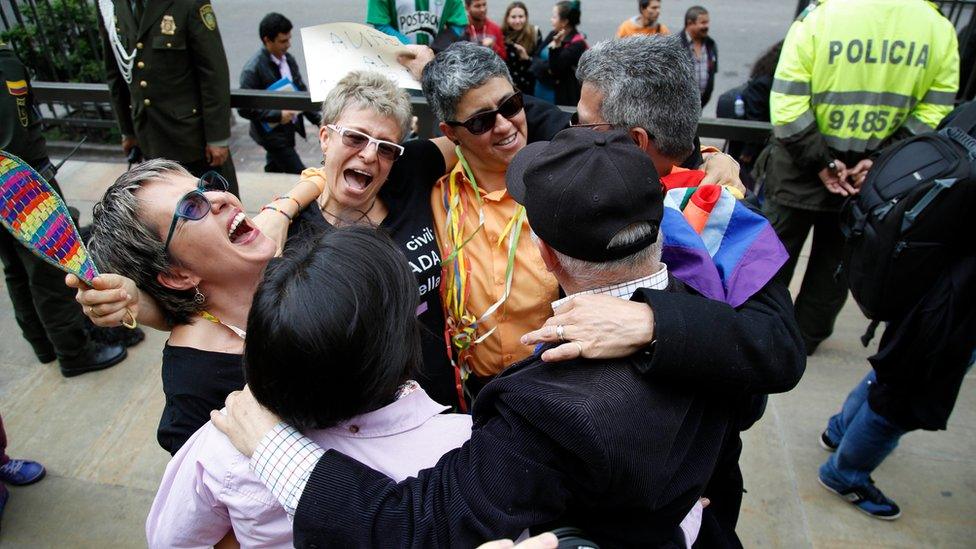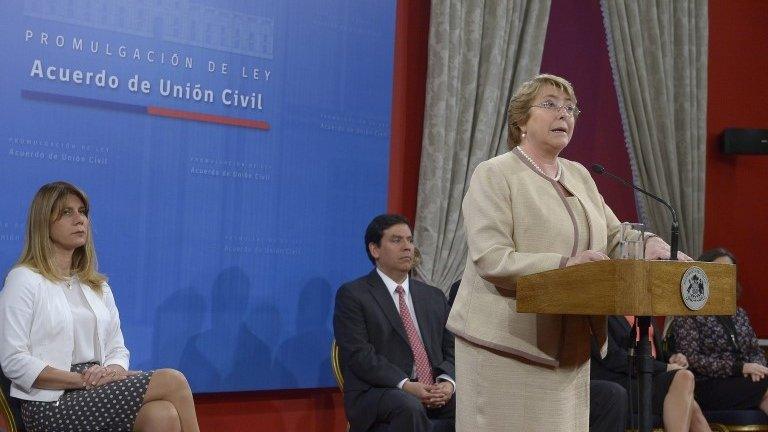Inter-American Human Rights Court backs same-sex marriage
- Published

Activists celebrated the court's ruling holding up signs reading: "The court said yes!"
The Inter-American Court of Human Rights has ruled that same-sex marriages should be recognised.
The court's rulings apply to countries which have signed the American Convention on Human Rights.
Some of the signatories already recognise same-sex marriages while others recognise same-sex civil unions.
But others, such as Bolivia, Cuba, Dominican Republic, Honduras, Paraguay and Peru do not recognise either and will be expected to change their laws.
The court was established by the regional body, the Organization of American States (OAS), and signatories to the Inter-American Convention on Human Rights are bound by its rulings.

Western hemisphere countries where same-sex marriage is legal:

Argentina
Brazil
Canada
Colombia
Mexico (certain states only)
US
Uruguay

The ruling comes as a number of Latin American countries have changed or are debating changing their laws to allow same-sex couples to marry.
Most recently, outgoing Chilean President Michelle Bachelet sent a gay marriage bill to Congress for debate.
Other western hemisphere countries, such as Ecuador, have introduced same-sex civil unions.
'Without discrimination'
The judges said that governments "must recognise and guarantee all the rights that are derived from a family bond between people of the same sex".
They also said that it was inadmissible and discriminatory for a separate legal provision to be established just for same-sex marriages.
The judges demanded that governments "guarantee access to all existing forms of domestic legal systems, including the right to marriage, in order to ensure the protection of all the rights of families formed by same-sex couples without discrimination".
Recognising the difficulty in passing such laws in countries where there is strong opposition to same-sex marriage, they recommended that governments pass temporary decrees until new legislation was brought in.
The judges issued the ruling in response to a motion brought by Costa Rica.
The Central American government asked the court to give its opinion on whether it had an obligation to extend property rights to same-sex couples. The court ruled that it did.
The Costa Rican government also wanted to know whether it should allow transgender people to change their name on their identity documents. Again, the court ruled that it should.
Costa Rica's Vice-President Ana Helena Chacón welcomed the court's ruling, saying it would be adopted "in its totality".
- Published29 August 2017

- Published29 April 2016

- Published14 April 2015
